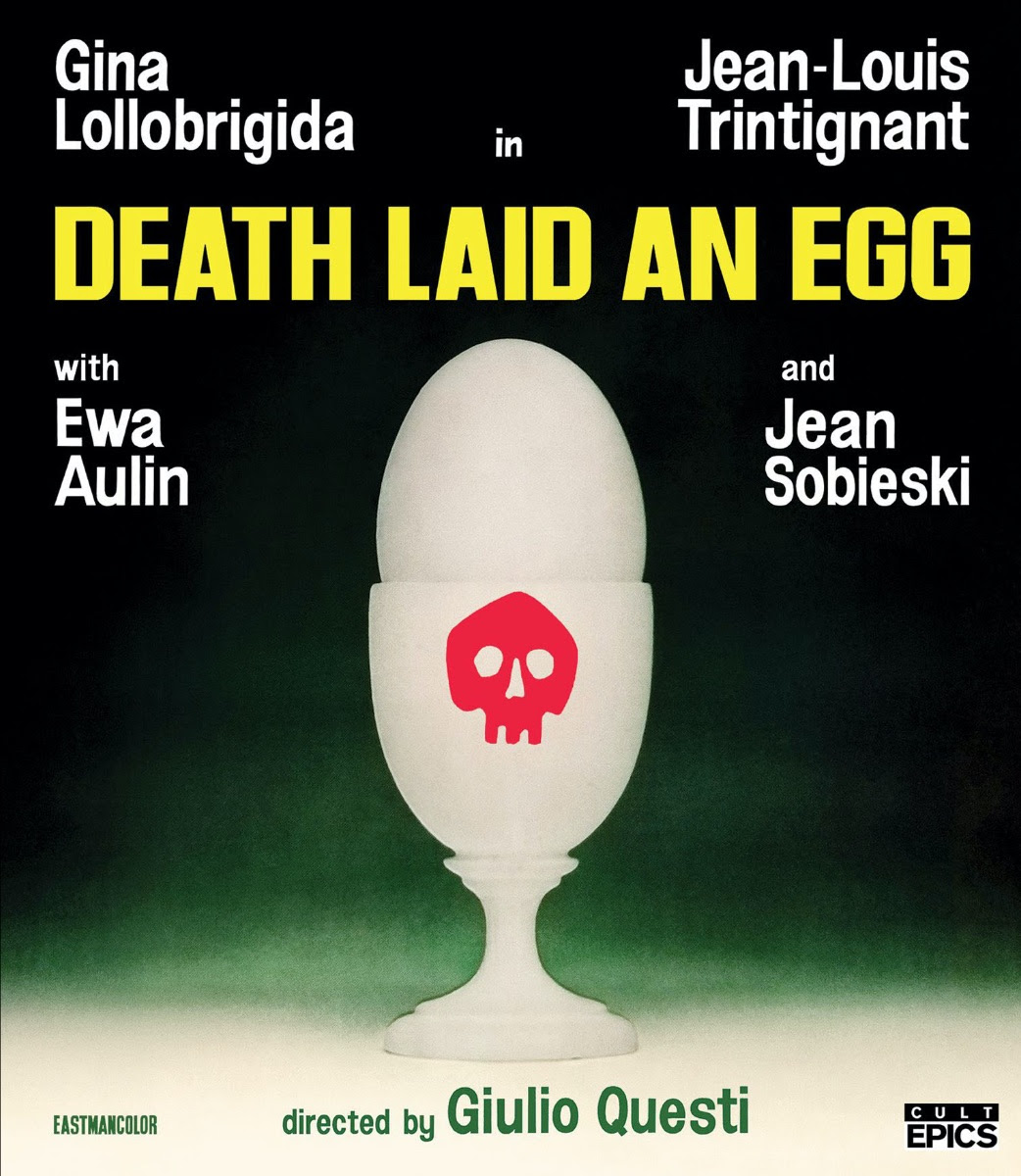Death Laid an Egg is a 1968 giallo film directed by Giulio Questi, who was most known to me previously as the director of my favorite western. The complete and utterly bizarre Django Kill… If He Lives Shoot! Which is one way that Death Laid an Egg could also be described, completely and utterly bizarre. The film was made in 1968, still quite early for the giallo genre, and thus not beholden to the trappings of the genre that would be set once Argento’s later Bird with the Crystal Plumage would set the overall tone for the next decade of gialli.
The film opens with a montage of urban life, including the murder of a prostitute by our protagonist Marco (the legendary Jean-Louis Trintignant). Marco and his wife Anna owns and operates an experimental chicken farm on the outskirts of the city (which it appears has just let go most of its staff recently, who frequently protest outside the gates). Under their personally employ is Gabriellla (Ewa Aulin), who Marco is also having an affair with. It turns out the main-drive behind the farm’s existence is a corporate desire to create mutant chickens with more meat and less bone, when these are born and Marco sees them he freaks out and kills them, but they are not the only target of his murderous desires.
Death Laid an Egg is a pitch dark, black comedy most of the time with giallo elements only leaking into it at various points throughout, and most notably in the third act as Gabrielle and Marco plan for murder. The film is utterly avant-garde in its approach, and thus gives it the power to really stick in ones visual memory. The cinematography from Dario Di Palma is fantastic and really captures the bizarre look and feel that Questi was going for, and the score adds to the strange ambiance.
Death Laid an Egg is presented in a 1:85:1 1080p transfer from Cult Epics that looks absolutely fantastic. Colors pop, detail is excellent, some darker scenes have compression issues, but overall everything looks great here. Audio is handled by an LPCM 2.0 for both English and Italian and comes through crisp, clear, and without issue. Extras start with the fact that there are 2 distinct cuts of the film, the Director’s cut which runs a good deal longer, and a giallo cut which removes a whole character, and shreds of detail and subtext. We get a commentary with Mondo-Digital’s Nathaniel Thompson, and Troy Howarth, the track itself is fine, with Thompson offering some great material, and keeping the track lively. There is an archival interview with Questi, and a short film by the director as well. HIGHLY RECOMMENDED.

